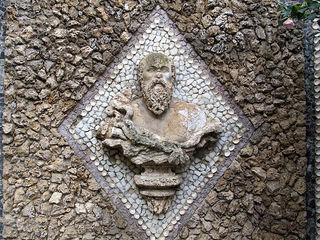Philosophy
Why Socrates' Methods Are So Important
Engaging in dialogue can help make our ideas clear.
Posted August 8, 2019
"For philosophy begins in wonder." Socrates believed this to be the starting point of thinking–to wonder about your object of thought. To wonder is to be astonished, to entertain some doubt and to get curious. We begin to wonder, then in dialogue, we can explore our subject and get clear on our ideas.
Learning happens when we are curious. What are you curious about? What do you want to better understand in your own life? By taking this first step and simply wondering about it you are on your way to self-discovery and finding the truth. The entire aim of Socrates’ dialogues was to demonstrate the need to think for ourselves. Thinking for Socrates was defined as a dialogue of the mind with itself.

Socrates the ancient Greek philosopher is largely credited as the founder of western philosophy. He developed a philosophical disposition at a young age and would do the most annoying of things–walk around and ask questions to complete strangers. He would humbly ask a question, attempt to engage and then see if each could be left any more the wiser for having had the discussion. His aim was to look for a systematic rationale which enlivens the way we talk about an idea. What makes it so valued? Why is it so esteemed?
The search for wisdom and truth lied in the activity of dialogue. It was in the asking, the seeking and the engagement that one would come to know their true beliefs and get to the heart of the matter on problems that plagued the soul. An investigating, conversational attitude makes it possible to bring up implied opinions, then question the validity of those views.
While having dinner with a friend recently, she confided that she was miserable at work. Her boss seemed to not care about or take his responsibilities seriously. My friend was left to pick up the slack and deal with the necessary pitfalls of a disengaged boss. This put her in a precarious position and caused great discomfort.
I asked her, how do you define your job role? What is your duty to the position, and did it involve doing the work of her boss? Well, no, she responded but how can I not? It’s my obligation because I believe others should be given proper information. The problem was her goal was to try and get her boss to perform his duty and that wasn’t going to happen. It was an implied belief that doing her boss’ role would somehow wake him up to perform it himself. He most likely was not going to magically change. If she could help others but do so while accepting that it would not change the disposition of her boss, she could continue to uphold her principles. For her, helping others was her most valued role at work and she wanted to remain doing that.
Dialogue with a friend or the self can make beliefs, unspoken knowledge and convictions explicit. They are brought to the surface and can be investigated as to their worth and importance. Some principles can be cast aside, and we can be allowed to venture forth with newfound ideas that serve us better.
Socrates revealed that in discussing and analyzing an idea the very nature of the concept would reveal itself. But sometimes the answer was not revealed. In the dialogue, ‘Lysis’ Socrates and two young men take up the challenge and try to answer, what is friendship? They have a lively discussion but never answer the question. But this was perfectly acceptable for Socrates because he made them engage in something far more important, he aroused them to think for themselves. They were invited to explore their inner world and examine their life to make living somewhat more worthwhile. It was in this way that Socrates remains the greatest teacher the world has ever known. Philosophy may begin in wonder move through doubt and arrive with not always knowing but the process makes all the difference. The journey can sometimes be the answer after all.


